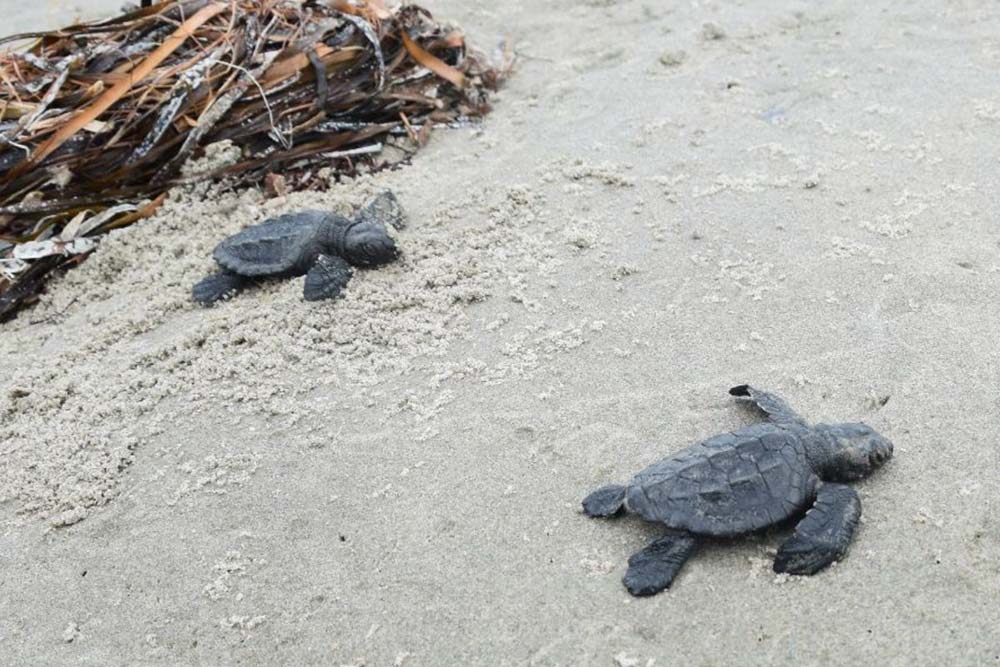Kemp’s ridley sea turtle hatchlings have been seen on Lousiana’s Chandeleur Islands, marking the first time in 75 years the reptile has been observed there.
Kemp’s ridley (Lepidochelys kempii) sea turtle hatchlings have been seen on Lousiana’s Chandeleur Islands, marking the first time in 75 years the reptile has been observed nesting upon the islands. The discovery was made by the Louisiana Coastal Protection and Restoration Authority (CPRA) and Louisiana Department of Wildlife and Fisheries (LDWF) in the state’s Breton National Wildlife Refuge.
“Louisiana was largely written off as a nesting spot for sea turtles decades ago, but this determination demonstrates why barrier island restoration is so important,” CRPA Chairman Chip Kline said in a statement on the CPRA website. “As we develop and implement projects statewide, we are always keeping in mind what’s needed to preserve our communities and enhance wildlife habitat. Having this knowledge now allows us to make sure these turtles and other wildlife return to our shores year after year.”
Endangered Kemp’s Ridley Sea Turtle Found Dead, Stuck In Barstool
The Louisiana government began monitoring the islands in May in an effort, in conjunction with the state’s Regionwide Trustee Implementation Group to design a project that will help restore the islands. The islands were negatively impacted by the 2010 Deepwater Horizon Oil Spill and various tropical weather events over the years. Because the turtles have nested on the islands for the first time in 75 years, this will help the government to implement a restoration plan that ensures the sea turtle nesting habitat on the islands are preserved.
“It is well known that the Chandeleur Islands provide key habitats for a host of important species; however, with the recent discovery of a successful Kemp’s ridley sea turtle hatching, the islands’ value to the region has been elevated,” said LDWF Secretary Jack Montoucet. “We are gaining a better understanding of the benefits this barrier island restoration may provide in the recovery of this endangered species across the Gulf of Mexico.” “We have a responsibility to protect the wildlife here, and that means creating safe and nourishing environments for these turtles and other animals that call Louisiana home,” said CPRA Executive Director Bren Haase. “It’s an exciting discovery, and we hope to see additional hatchlings emerging in the weeks and years to come.”
The U.S. Fish and Wildlife Service noted that in addition to Kemp’s ridley sea turtles, loggerhead sea turtles are also nesting on the Chandeleur Islands as well.
Kemp’s ridley sea turtles are the rarest sea turtles to visit US shores and are critically endangered. It is a small turtle, averaging about 25 to 30 inches in length and around 100 lbs. The turtle lives mostly in the Gulf of Mexico and warm waters of the the Atlantic Ocean.



